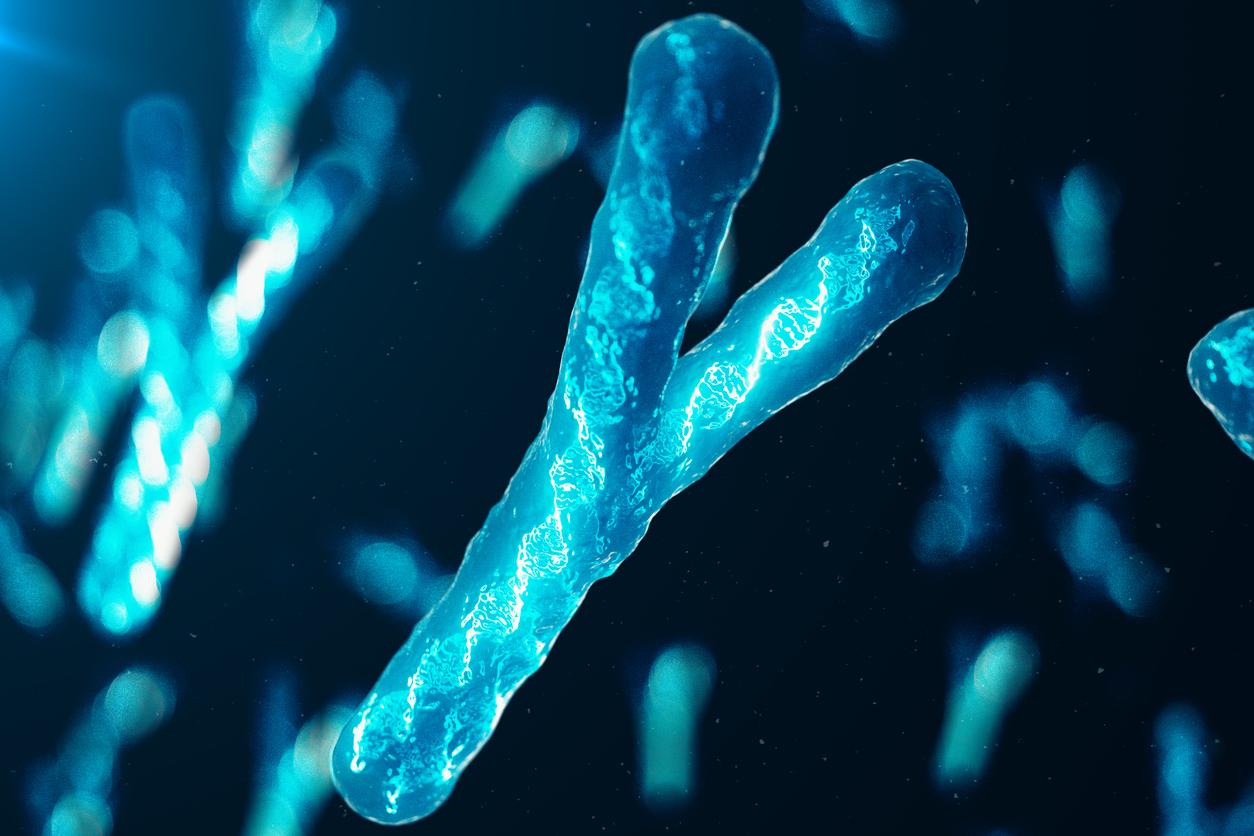A gene, present on the Y chromosome, is associated with a higher risk of heart failure in men.

- In some men, the Y chromosome disappears from cells as they age.
- Scientists believed that this could be one of the causes of heart failure.
- In reality, the pathology would be linked to the degradation of a gene present on this chromosome.
The Y chromosome can disappear from male cells over the years. Around 40% of men would be affected by this loss. However, it can increase their risk of cardiovascular disease. In the specialist journal Naturescientists from the University of Virginia, in the United States, explain that the disruption of a gene present on this chromosome leads to an increased risk of heart failure.
Y chromosome: how does it impact men’s health?
In 2022, Kenneth Walsh, a renowned American cardiologist, and his team discovered that loss of the Y chromosome causes different changes in cardiac immune cells, which can have consequences for cardiovascular health, including the risk of heart failure. cardiac. “Our previous work identified that it was the loss of the entire Y chromosome that contributed to heart disease in men, summarizes the director of the Center for Hematovascular Biology at the University of Virginia. This new work identified a unique gene on the Y chromosome that may explain the pathogenic effects of Y chromosome loss.”
Disruption of a gene on the Y chromosome is associated with heart failure
To better understand the effects of Y chromosome loss, Kenneth Walsh and his team examined the genes present on the Y chromosome to determine which ones might be important for heart damage. This research led them to a gene called Uty, whose role is to help control the functioning of immune cells called macrophages and monocytes. “When the Uty gene was disrupted, either individually or through loss of the Y chromosome, this triggered changes in immune cells in laboratory mice.”, they observe. This led to greater macrophage vulnerability and accelerated heart failure.

Heart failure: therapeutic avenues thanks to this genetic discovery
The research team managed to reverse this phenomenon by administering a monoclonal antibody to laboratory mice. This prevented changes in macrophages and heart damage. For American scientists, this “suggests that this approach could, with further research, lead to a way to treat or prevent heart failure and other fibrotic diseases in men with Y chromosome loss.”. The term fibrotic disease refers in particular to certain pulmonary pathologies.
Furthermore, continued work on changes in chromosomes throughout life will also provide a better understanding of the causes of certain heart diseases. Today, cardiovascular pathologies, including heart failure, are the leading cause of death worldwide.















